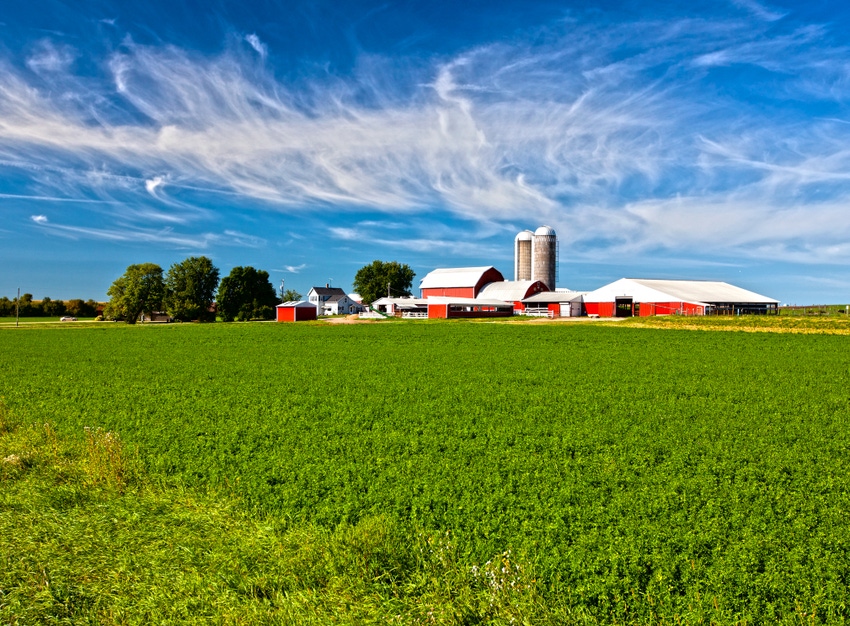
by Jennifer Jacobs, Josh Wingrove and Debra Mao
Talks to update the North American Free Trade Agreement will resume Wednesday in Washington with a focus on dairy as the U.S. pressures Canada to strike a deal by Friday, a U.S. official familiar with the negotiations said.
Canada’s Foreign Minister Chrystia Freeland is expected to visit the Washington office of U.S. Trade Representative Robert Lighthizer starting at about 9 a.m. Wednesday after arriving in the U.S. capital late Tuesday.
This week’s Nafta showdown has Canada under the gun to either strike a deal both can live with, cave to President Donald Trump’s pressure tactics or dig in and see what the U.S. will do.
Dairy is scheduled to be the main focus of the talks Wednesday, the official said. Trump has previously said that Canada must reduce its tariffs on dairy, and dismantle a dairy system designed to avoid oversupply, to reach a deal. At the same time, the U.S. has prepared scenarios that would allow Canadian negotiators to claim a win on other issues, allowing Prime Minister Justin Trudeau and his team to save face, two U.S. officials said.
Related Story: Canadian Unity on Nafta Cracks in Latest Trudeau-Trump Showdown
The U.S. made clear that the deadline for an agreement in principle is Friday, with no wiggle room, one official said. Despite U.S.-Mexico progress, key issues remain for Canada, although markets are betting a deal will be reached that includes Ottawa even as Trudeau’s political rivals begin to blame him for risking Nafta’s collapse.
Lighthizer didn’t speak to reporters Tuesday. Freeland struck a positive tone before and after the meeting, saying aspects of an accord struck without Canada at the table will help advance other issues. She said it will be an “important and constructive week” and that Canada was encouraged by progress made without them.
‘Significant Concessions’
“What has really paved the way for what Canada believes will be a good week is the fact that Mexico has made significant concessions on labor,” she said. “These concessions really are going to be valuable to workers in Canada and the United States.”
The U.S. side noted during the meeting that they’ve already compromised on the issue of the sunset clause, which was a sticking point for Canada, and that they hope that helps pave the way to a quick deal, one of the U.S. officials said.
Freeland was scheduled to meet Mexican Economy Minister Ildefonso Guajardo later Tuesday in Washington.
The U.S. and Mexico announced a deal Monday after weeks of talks with just the two nations -- excluding Nafta’s third partner. Trump is now using that agreement to pressure Canada to come on board, though several key issues remain. Trump is prepared to move forward with Mexico alone, on the belief that Canada has more to lose from such an arrangement, the officials said.
There are also warnings that U.S. trade law will prevent, or impede, Trump from ramming ahead on a quick timeline with only a two-country deal, and key figures in Congress are calling for Canada to be included. Trump has threatened to apply auto tariffs to Canadian exports if a deal isn’t reached.
The nations are pushing to sign a deal before Mexico’s president-elect takes office Dec. 1. Due to timelines set out in U.S. trade law, the U.S. would need to notify Congress of a deal by Friday, Lighthizer said this week. However, he said a notification could be sent that left open the possibility of Canada reaching a deal sometime after Friday.
Reaction to this week’s developments has been somewhat mixed in Canada. Conservative Leader Andrew Scheer broke with what had been a practice of solidarity on Nafta to criticize Trudeau for risking Canadians’ jobs, while some analysts expressed outrage at Trump’s press conference Monday designed to pressure Canada, a longtime ally and the top buyer of U.S. exports.
“Canadians generally supported the approach when it looked like Canada and the United States were the ones working things out,” pollster Nik Nanos of Nanos Research said. “The narrative now for some Canadians is ‘have we become a passenger in the Nafta negotiation process’ -- because that’s clearly the signal Donald Trump sent.”
About the Author(s)
You May Also Like




